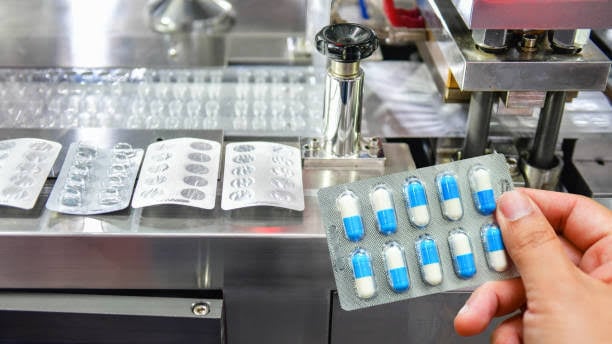Add your promotional text...
India’s Pharmaceutical Industry: A $130 Billion Innovation Powerhouse by 2030
Synopsis: India is set to revolutionize its pharmaceutical industry, with projections valuing the sector at $130 billion by 2030. Already a global leader in generic drug production, the country is poised to become a hub for pharmaceutical innovation, driven by significant R&D investments, government incentives, and strategic partnerships. Despite challenges like talent gaps and intellectual property issues, India's commitment to research and technology is positioning it as a major player in global healthcare solutions.
VIEWS ON NEWS
By Monika Agarwal
9/27/20243 min read


India stands at the threshold of a major transformation in its pharmaceutical sector, with projections indicating the industry could reach a valuation of $130 billion by 2030, according to a recent report. As the world’s third-largest producer of drugs by volume, India already exports pharmaceutical products to more than 200 countries, showcasing its global impact. The findings, part of a whitepaper published by Deloitte and launched at Assocham’s annual pharma summit, reveal India’s potential to evolve from a leader in generic drug production to a global powerhouse in pharmaceutical innovation.
The report emphasizes that India’s growth trajectory in this sector will be driven by key factors such as advancements in research and development (R&D), regulatory reforms, and the cultivation of strategic global partnerships. These elements are crucial in enabling the country to move beyond its current strengths in generic drug manufacturing to become a center for innovative drug discovery and development.
According to Joydeep Ghosh, Partner and Industry Leader for Life Sciences and Healthcare at Deloitte India, the future of India’s pharmaceutical industry hinges on critical investments in R&D, as well as addressing skill shortages in high-demand areas like artificial intelligence (AI) and biotechnology. “With the market expected to reach $130 billion by 2030, growth will depend on significant investments in research and innovation, as well as the development of talent in emerging fields such as AI and biotechnology,” Ghosh remarked.
Government-led initiatives, including the production-linked incentive (PLI) scheme, aim to bolster domestic pharmaceutical manufacturing and reduce dependence on imports. These initiatives are designed to create a robust foundation for India to not only meet its internal healthcare demands but also establish itself as a global leader in pharmaceutical innovation.
Collaboration is key to India’s progress, and according to the whitepaper, fostering partnerships between academia, industry, and government will be essential. Such collaborations will help the country create an ecosystem conducive to drug discovery, clinical trials, and innovative healthcare solutions. “India has a unique opportunity to accelerate economic growth and improve health outcomes, both domestically and globally, by leveraging its growing talent pool and fostering collaborations across sectors,” Ghosh added.
The report further highlighted that India is rapidly emerging as a destination for advanced drug discovery and development, thanks to a growing number of clinical trials, rising investments in biotechnology, and a skilled workforce. This momentum, driven by the government’s focus on R&D and innovation, positions the country to attract global pharmaceutical companies looking to collaborate on cutting-edge projects.
However, the report also pointed out several challenges that must be addressed for India to fully realize its potential as a hub for pharmaceutical innovation. These include the need for greater investment in R&D, enhanced protection for intellectual property (IP), and a concerted effort to close the talent gap in areas such as AI, data science, and biotechnology.
To overcome these challenges, the whitepaper suggests that India must develop a cohesive strategy that integrates research initiatives, technology investments, and commercialization efforts. Additionally, upskilling the workforce and strengthening IP frameworks will be crucial in building a sustainable innovation ecosystem. “A comprehensive strategy that combines research, technology investment, commercialization, skilling, and intellectual property development will be critical in fostering a thriving innovation ecosystem,” commented Neha Aggarwal, Partner at Deloitte India.
In conclusion, India’s pharmaceutical industry is poised for a dynamic transformation, with significant potential to emerge as a leader in global pharmaceutical innovation. Through strategic investments, government support, and a focus on collaboration across sectors, India has the opportunity to not only boost its economic growth but also enhance global healthcare solutions. As the country continues to advance in areas like biotechnology and AI, and as it addresses the challenges of talent and R&D investment, it is well-positioned to become a world leader in pharmaceutical research and innovation.
